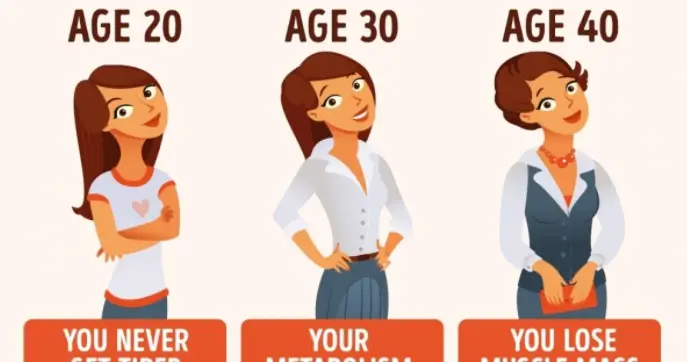When you were a child, you swallowed whatever came to your mind without any worries. You ate what you wanted without thinking about the consequences and without thinking that you would gain weight. Growing up, building bone structure and constantly consuming calories in running and jumping gave you a chance to indulge in gluttony without adversely affecting your shape.
According to the American Institute of Sports, which says that metabolism changes over the years and it is important to take control of appetite as well as muscle exercises, it is important because metabolism drops by as much as 2% with each passing decade.
Here are the reasons for the change and how you should eat properly, so as not to gain weight.
In the 20s
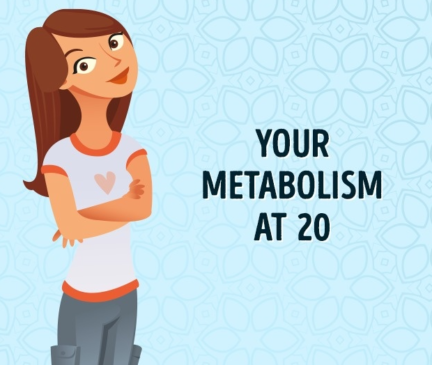
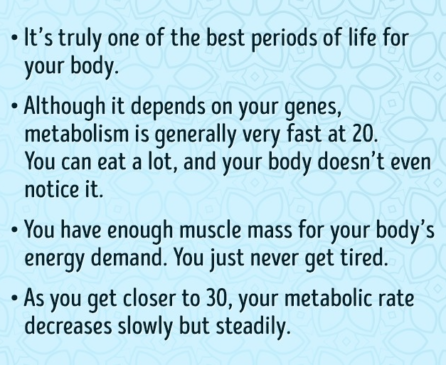
Image Credits : funnymodo.com
According to many experts, the late teens and early 20s are the peak of your fitness and metabolism. Then you can easily develop muscles, your body still produces growth hormone and your bones are built, which is the consumption of extra calories. Many of the things you eat during this period can easily be “burned out” and look great.
In the 30s
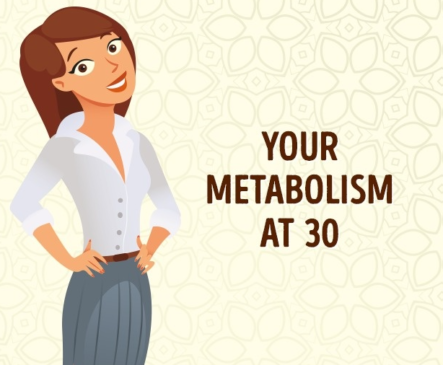
In this adult period of time, the time of burning calories slows down. Muscles need more serious and systematic support, and the body produces almost no growth hormone. As a cover you have probably already focused on your career and are starting to lead a sedentary lifestyle behind the desk.
Tip: Rely on more exercises that build more muscle and boost growth hormone production in the body – both of which boost metabolism.
Pregnancy
If you decide to have a baby, it can also boost your metabolism, the trick is not to relax and not think you can eat for two. It is good to increase your calorie intake by 200 calories during pregnancy, and it is considered healthy to gain between 8 and 12 kilograms during the whole pregnancy.
Breastfeeding
Breastfeeding helps you deal with a lot of accepted calories. A woman who breastfeeds several times a day can burn about 500 – 1000 calories more per day.
In the 40s
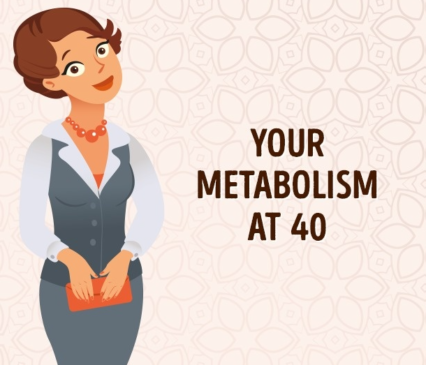
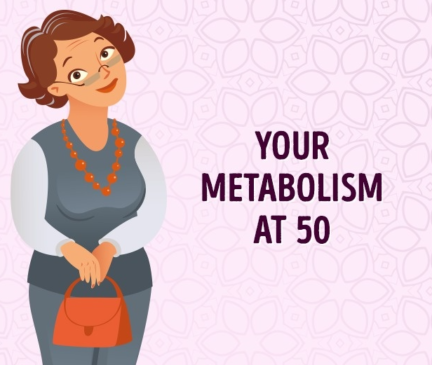
Image Credits: sp.depositphotos.com
Hormones are no longer raging and the levels of estrogen, progesterone and growth hormone are far from what they used to be. They cause a drastic reduction in metabolic activity, which imposes a reduction in daily calorie intake by 150 calories less than what you ate during the 30s. It is important to move and train as much as possible.
Tip: In your 40s it is nice to eat more protein, iron, fiber and vitamins.
To maintain a healthy metabolism, it is important to rationalize your diet at any age. The diet can be considered complete if it is sufficient in terms of quantity and quality, and also covers energy costs. It is important to have more quality meals with healthy snacks than a hearty meal with too many calories. It is known that sweet foods, fast foods and foods rich in carbohydrates are the ones that cause obesity and that cause a slowing down of the metabolism, in “cooperation” with a lifestyle without physical activity.

